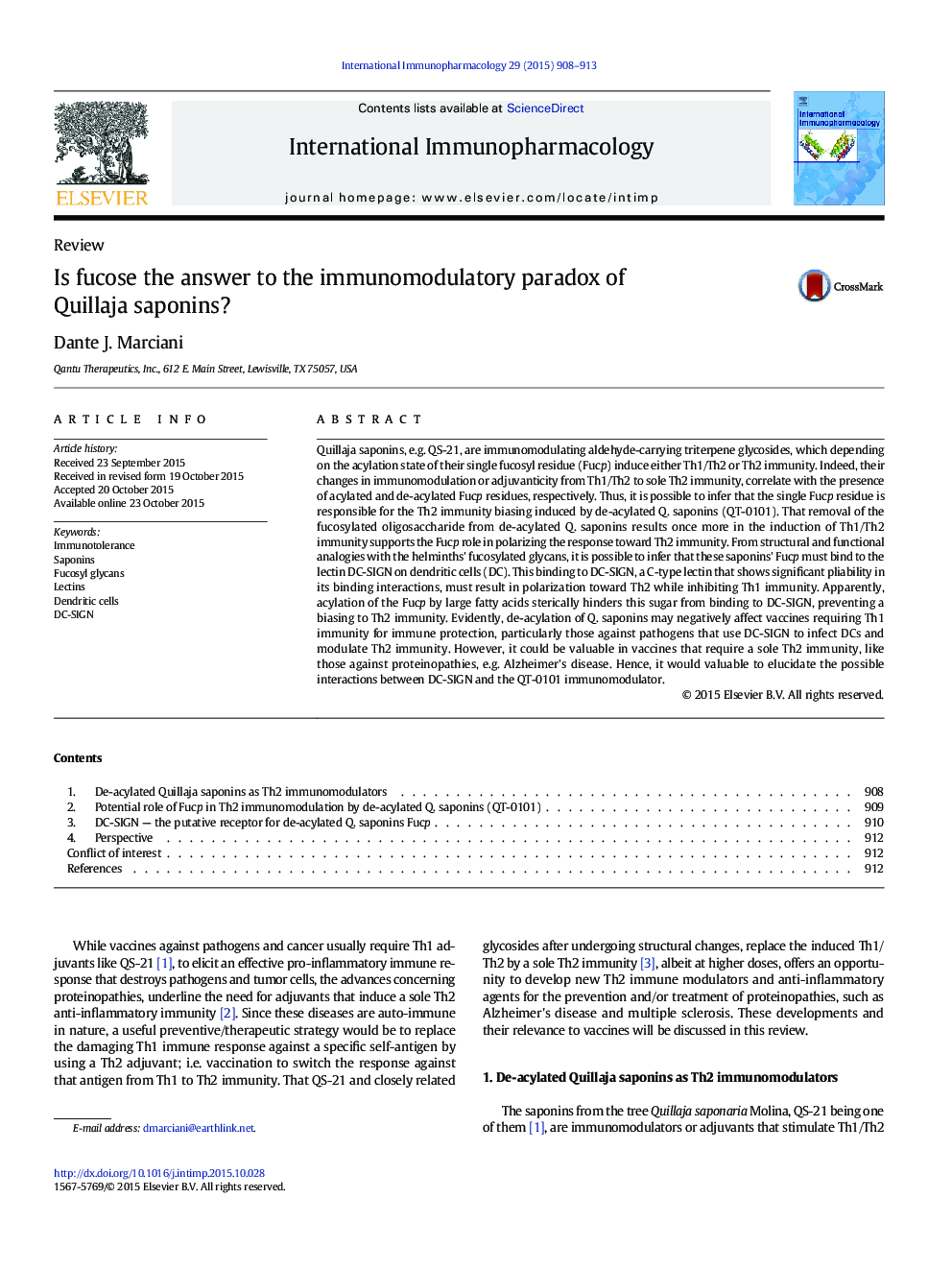| کد مقاله | کد نشریه | سال انتشار | مقاله انگلیسی | نسخه تمام متن |
|---|---|---|---|---|
| 5832329 | 1122593 | 2015 | 6 صفحه PDF | دانلود رایگان |

- Putative role of fucose in Quillaja saponins in stimulating Th2 while inhibiting Th1 immunity.
- Saponins' acylated fucose is sterically hindered from binding to a cell receptor like DC-SIGN.
- Removal of the fucosylated oligosaccharide reinstates the capacity to stimulate Th1/Th2 immunity.
- Fucose de-acylation by biasing immunity to Th2 response affects vaccines performance.
- De-acylated Quillaja saponins as potential anti-inflammatory agents.
Quillaja saponins, e.g. QS-21, are immunomodulating aldehyde-carrying triterpene glycosides, which depending on the acylation state of their single fucosyl residue (Fucp) induce either Th1/Th2 or Th2 immunity. Indeed, their changes in immunomodulation or adjuvanticity from Th1/Th2 to sole Th2 immunity, correlate with the presence of acylated and de-acylated Fucp residues, respectively. Thus, it is possible to infer that the single Fucp residue is responsible for the Th2 immunity biasing induced by de-acylated Q. saponins (QT-0101). That removal of the fucosylated oligosaccharide from de-acylated Q. saponins results once more in the induction of Th1/Th2 immunity supports the Fucp role in polarizing the response toward Th2 immunity. From structural and functional analogies with the helminths' fucosylated glycans, it is possible to infer that these saponins' Fucp must bind to the lectin DC-SIGN on dendritic cells (DC). This binding to DC-SIGN, a C-type lectin that shows significant pliability in its binding interactions, must result in polarization toward Th2 while inhibiting Th1 immunity. Apparently, acylation of the Fucp by large fatty acids sterically hinders this sugar from binding to DC-SIGN, preventing a biasing to Th2 immunity. Evidently, de-acylation of Q. saponins may negatively affect vaccines requiring Th1 immunity for immune protection, particularly those against pathogens that use DC-SIGN to infect DCs and modulate Th2 immunity. However, it could be valuable in vaccines that require a sole Th2 immunity, like those against proteinopathies, e.g. Alzheimer's disease. Hence, it would valuable to elucidate the possible interactions between DC-SIGN and the QT-0101 immunomodulator.
Journal: International Immunopharmacology - Volume 29, Issue 2, December 2015, Pages 908-913